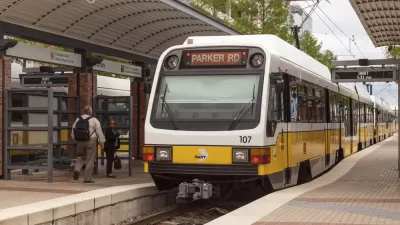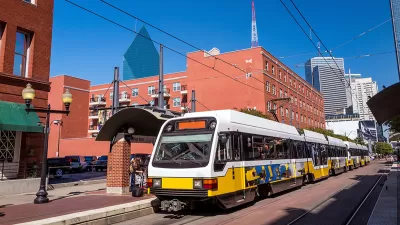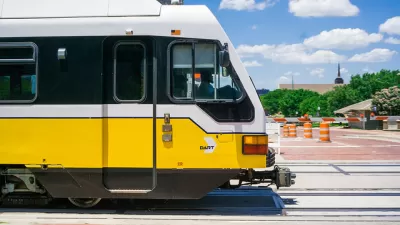Officials would like to speed up the arrival of the Cotton Belt—a planned rail line connecting Dallas to Plano—but that might require sacrificing service.
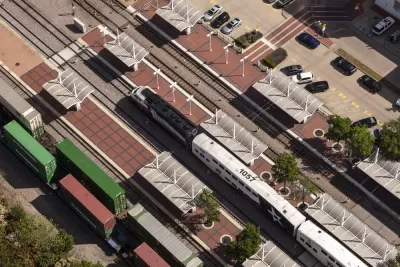
"A key part of fast-tracking rail service on the Cotton Belt line from DFW International to Plano hinges on lowering construction costs," according to an article by Brandon Formby. "To do that, Dallas Area Rapid Transit is considering single-tracking most of the route instead of double-tracking the entire path."
The project is currently expected to be complete by 2035. Single-tracking the line could speed up project completion to 2025.
Meanwhile, Cotton Belt planners are presented with the following dilemma: "Having two sets of tracks the entire way would allow trains to move in both directions without interfering with each other. But that's more expensive. Having one set is cheaper, but also comes with some operational inflexibility."
FULL STORY: Getting Cotton Belt rail service a decade early could come with some limitations
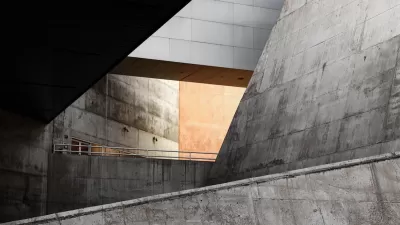
What ‘The Brutalist’ Teaches Us About Modern Cities
How architecture and urban landscapes reflect the trauma and dysfunction of the post-war experience.

‘Complete Streets’ Webpage Deleted in Federal Purge
Basic resources and information on building bike lanes and sidewalks, formerly housed on the government’s Complete Streets website, are now gone.

The VW Bus is Back — Now as an Electric Minivan
Volkswagen’s ID. Buzz reimagines its iconic Bus as a fully electric minivan, blending retro design with modern technology, a 231-mile range, and practical versatility to offer a stylish yet functional EV for the future.

Healing Through Parks: Altadena’s Path to Recovery After the Eaton Fire
In the wake of the Eaton Fire, Altadena is uniting to restore Loma Alta Park, creating a renewed space for recreation, community gathering, and resilience.

San Diego to Rescind Multi-Unit ADU Rule
The city wants to close a loophole that allowed developers to build apartment buildings on single-family lots as ADUs.

Electric Vehicles for All? Study Finds Disparities in Access and Incentives
A new UCLA study finds that while California has made progress in electric vehicle adoption, disadvantaged communities remain underserved in EV incentives, ownership, and charging access, requiring targeted policy changes to advance equity.
Urban Design for Planners 1: Software Tools
This six-course series explores essential urban design concepts using open source software and equips planners with the tools they need to participate fully in the urban design process.
Planning for Universal Design
Learn the tools for implementing Universal Design in planning regulations.
City of Albany
UCLA Lewis Center for Regional Policy Studies
Mpact (formerly Rail~Volution)
Chaddick Institute at DePaul University
City of Piedmont, CA
Great Falls Development Authority, Inc.
HUDs Office of Policy Development and Research


























